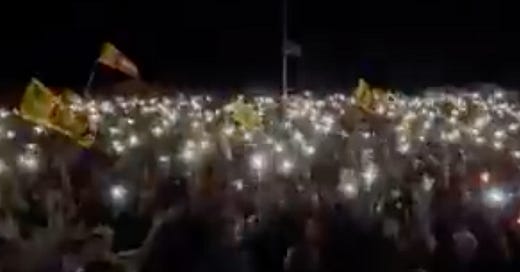Sri Lankans marked the third anniversary of Easter bombings that killed 279 people amid weeks of protests and the worst economic crisis the island nation has faced since its independence from Britain in 1948.
“Our people are on the brink with food, fuel and essential medicines becoming increasingly scarce and unbearably expensive,” said Godfrey Yogaraja…
Keep reading with a 7-day free trial
Subscribe to GlobeTrot to keep reading this post and get 7 days of free access to the full post archives.


